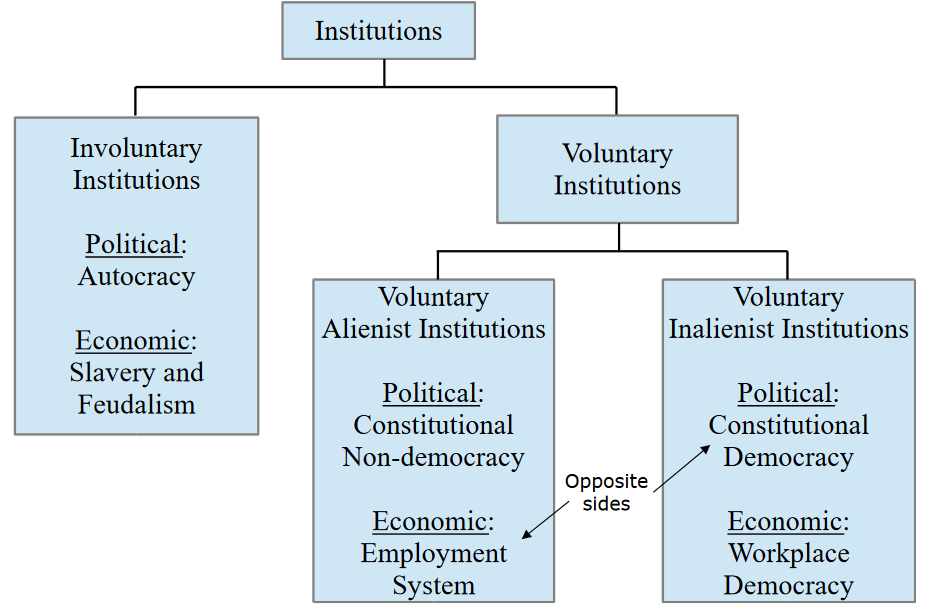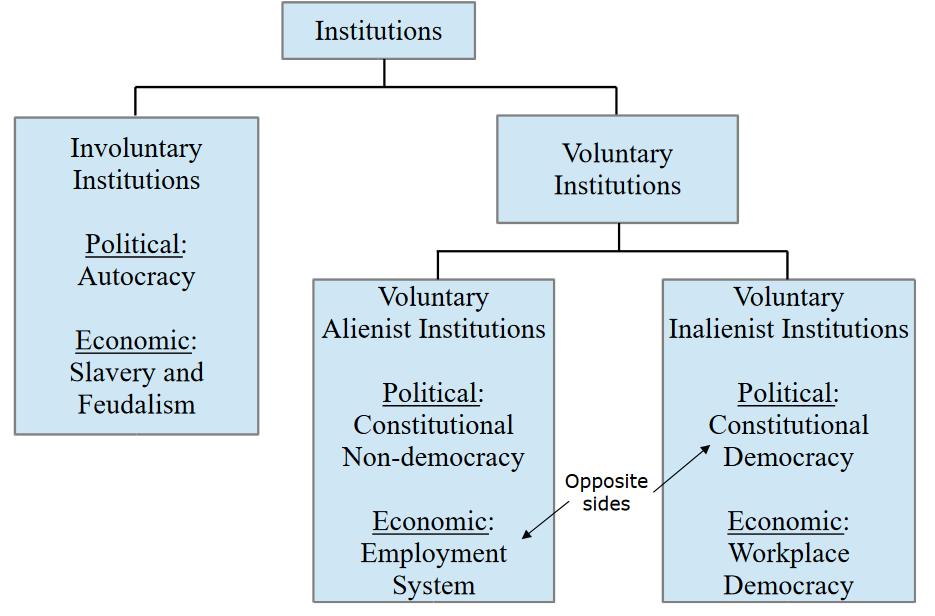There are anti-capitalist liberals though
jlou
At its core, liberalism is fairly anti-capitalist. There are many arguments against capitalism from liberal principles such as the principle that legal and de facto responsibility should match. The workers in the firm are jointly de facto responsible for using up inputs to produce outputs, but receive 0% claim on the positive and negative production while the employer solely appropriates 100% of the positive and negative result of production
It gets even more confusing when you consider anti-capitalist classical liberals
https://www.ellerman.org/wp-content/uploads/2018/12/Classical-Liberal-JurisprudenceJune2018.pdf
Worker cooperatives don't have to have a flat structure. Smaller cooperatives might use a flat structure, but larger companies will delegate business decisions to management. The main difference is that the board of directors represent the workers instead of outside shareholders making it democratic
The coin flip is inherently part of policy, and it is bad policy to decide on policies with a coin flip
Inalienable rights are moral rights that can't be given up or transferred. It doesn't mean that the legal system can't fail to enforce the right such as by legally treating it as alienable like capitalism does in the employment contract. If the legal system doesn't grant it, that's a bad legal system.
Moral concepts have an objective sense that is unknowable.
You can't get good policy without democracy because democracy is part of all good policy. Non-democracy violates inalienable rights, which makes it inherently bad policy
How can this be a rejection of the far left when Harris campaigned as a moderate (e.g. Cheney)? If republican voters are going to think Democrats are communist regardless of how moderate the Democrats are, maybe moderating isn't a good strategy. If the only choice is between right-wing and lite right-wing, right-wing voters will choose the real thing. Even then, Trumpists will still call democrats communists.
Many left polices are popular when they aren't labelled as left
2/2
If a worker voluntarily commits a crime for their employer, that is still inalienably their decision. Yes, the employer told them to do it, and that gave them a reason to do it, but having a reason doesn't absolve them of guilt or responsibility for their actions
1/2
A group of people is de facto responsible for a result if it is a purposeful result of their intentional joint actions. The pure application of the norm that legal and de facto responsibility match is to deliberate actions. The workers joint actions that use up inputs to produce outputs are planned and deliberate. They meet the criteria for being premeditated. The workers are not under duress in normal work, and consent to the employer-employee contract.


Liberalism refers to both a coherent political philosophy and a historical political tendency. The former liberalism is anti-capitalist. Yes many historical liberals were pro-capitalism, but this position makes their liberalism incoherent.
Private property rests on the principle that workers have an inalienable right to appropriate the positive and negative fruits of their labor. Capitalism violates this norm. Locke was wrong
A market economy of worker coops isn't socialism
@politicalmemes